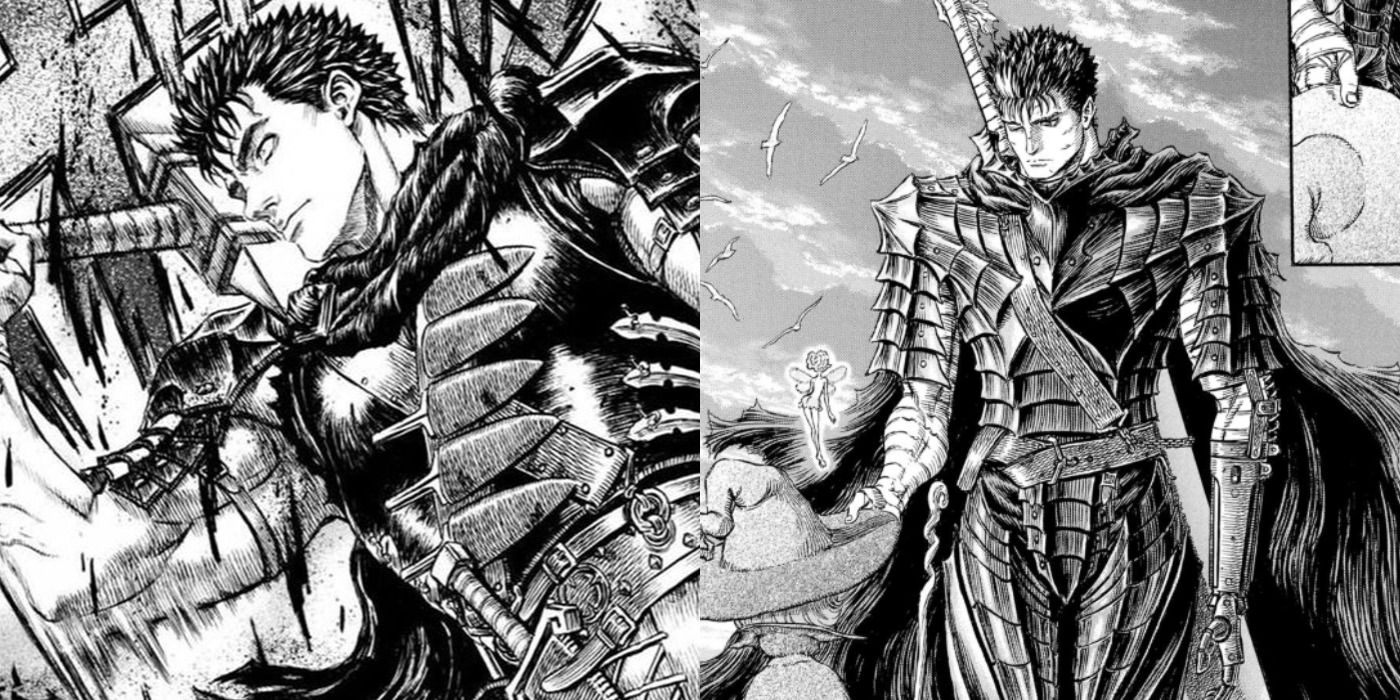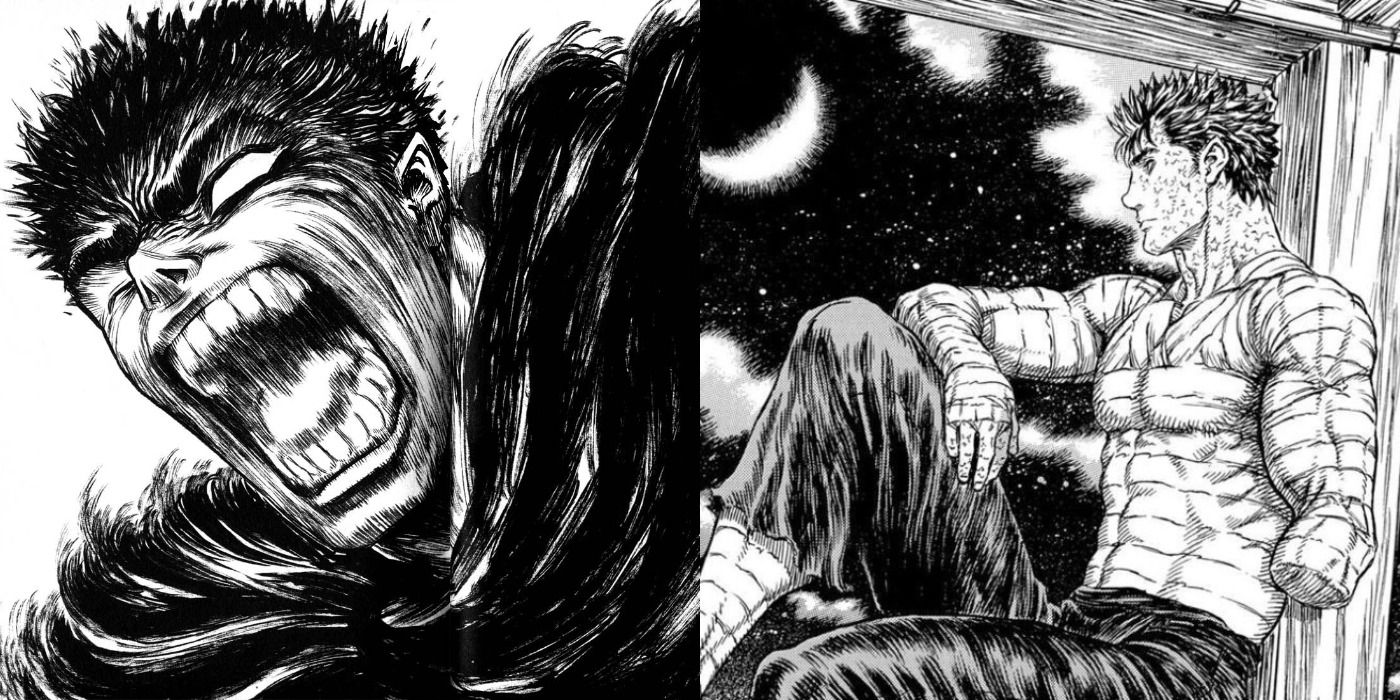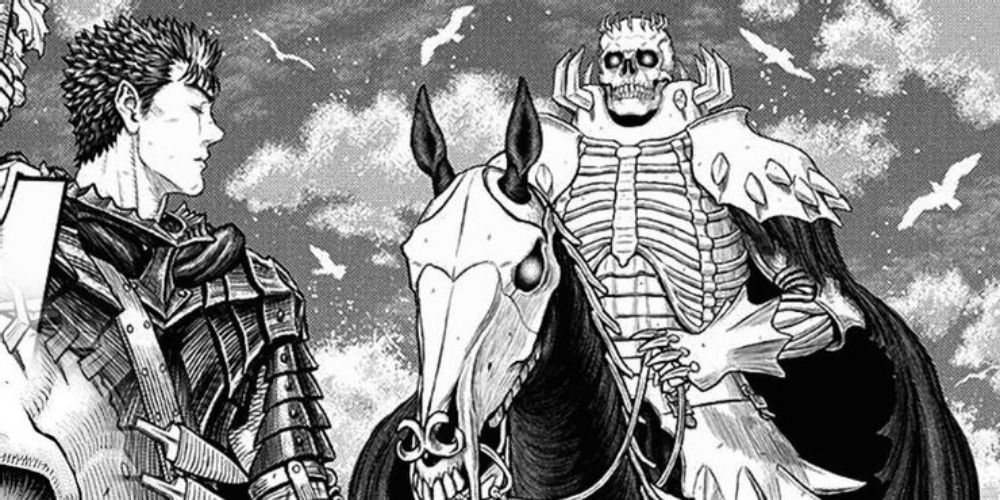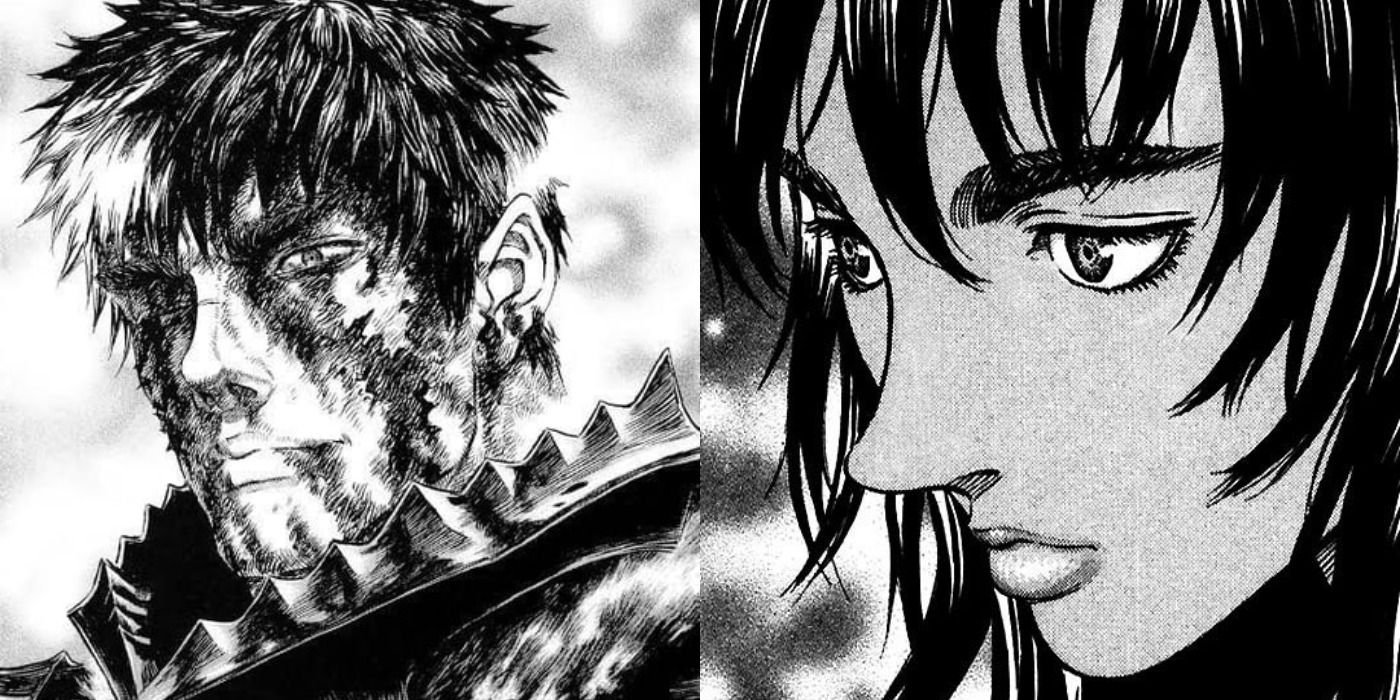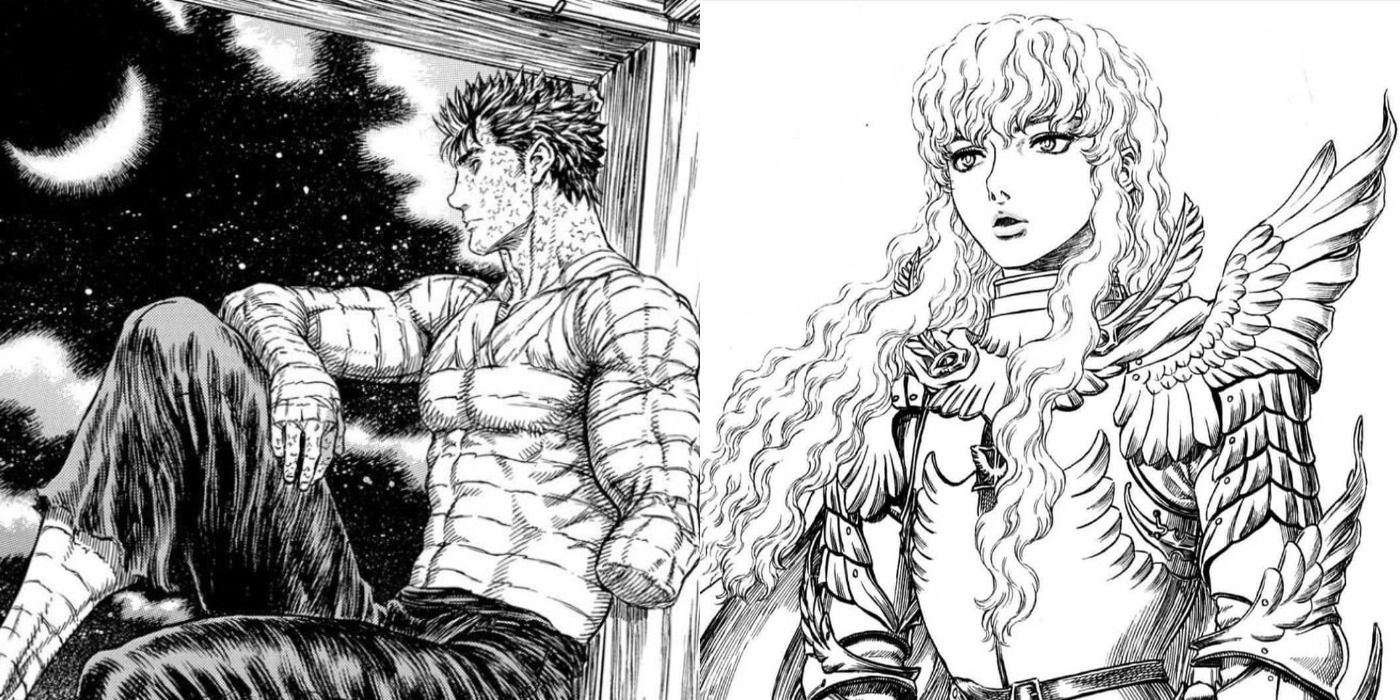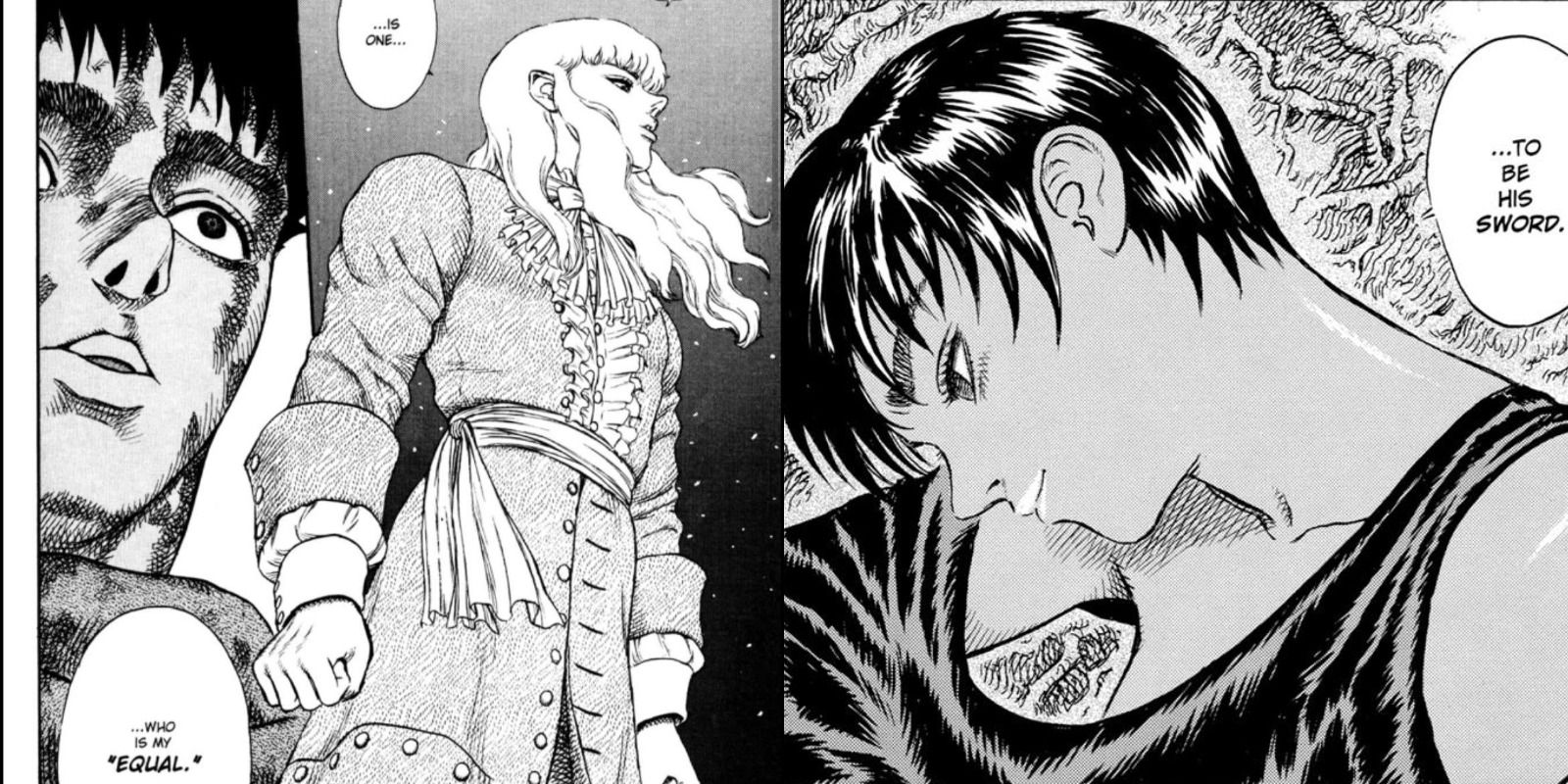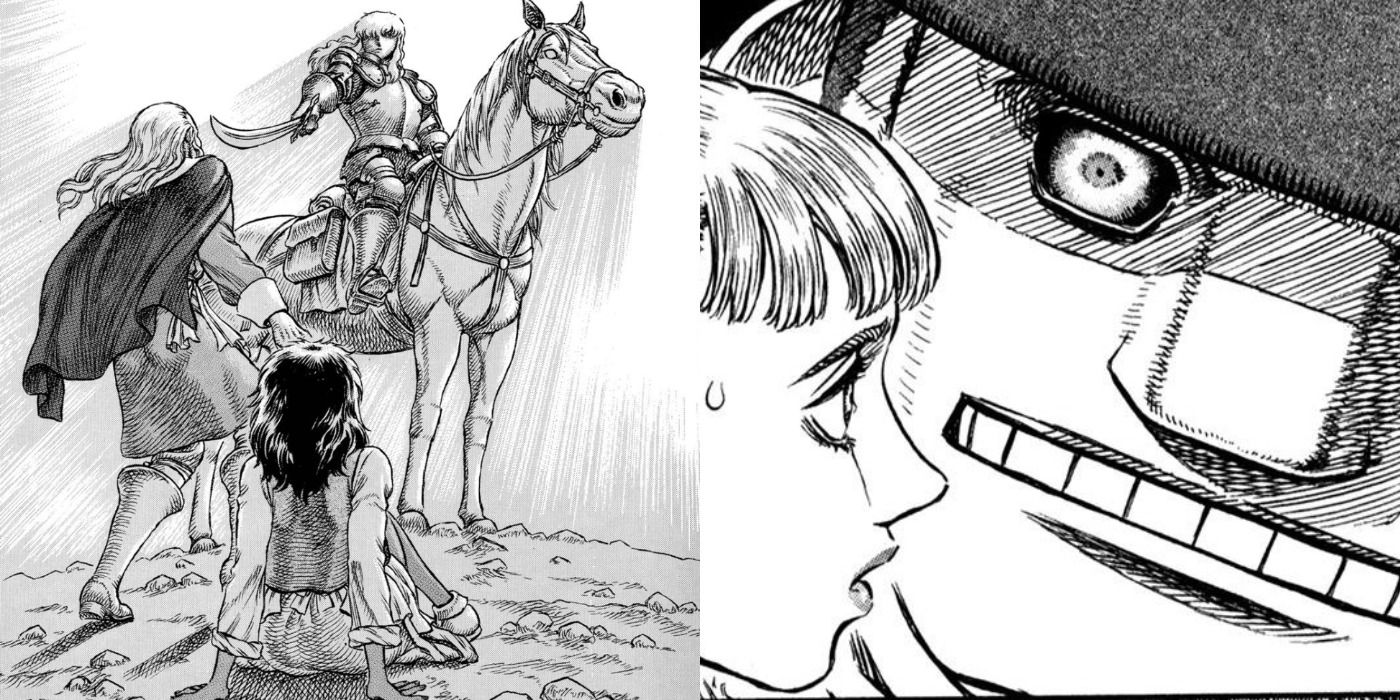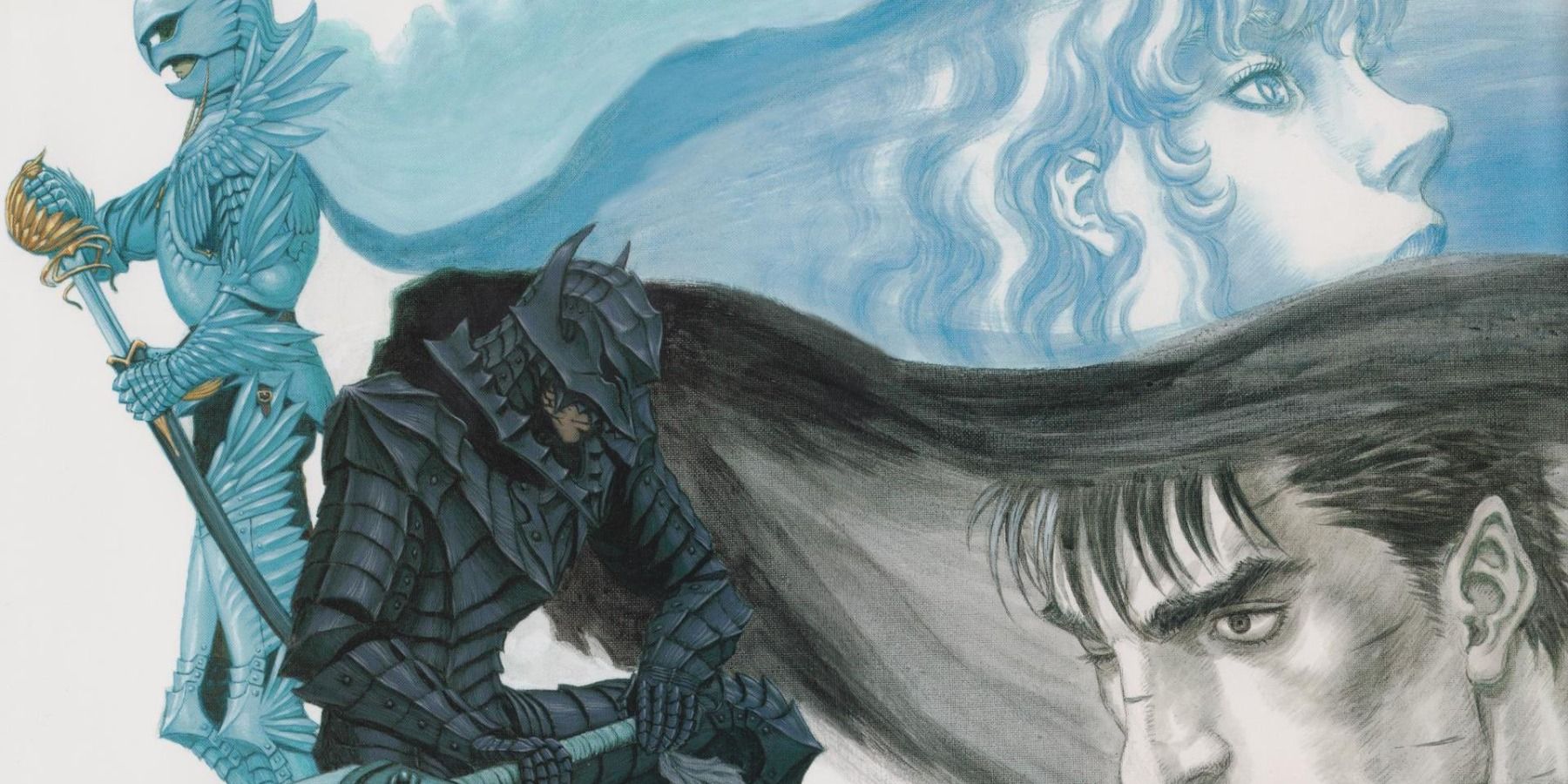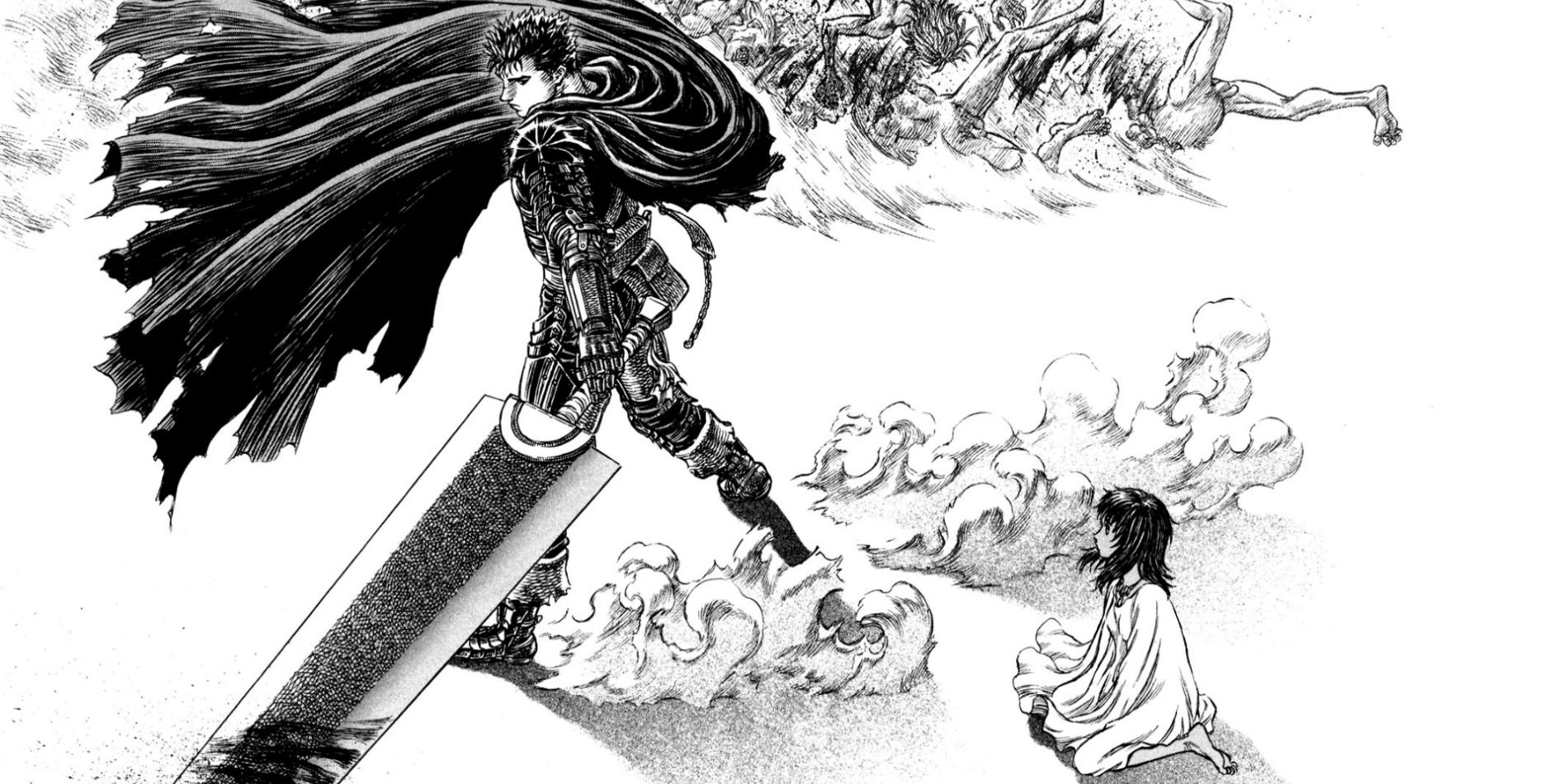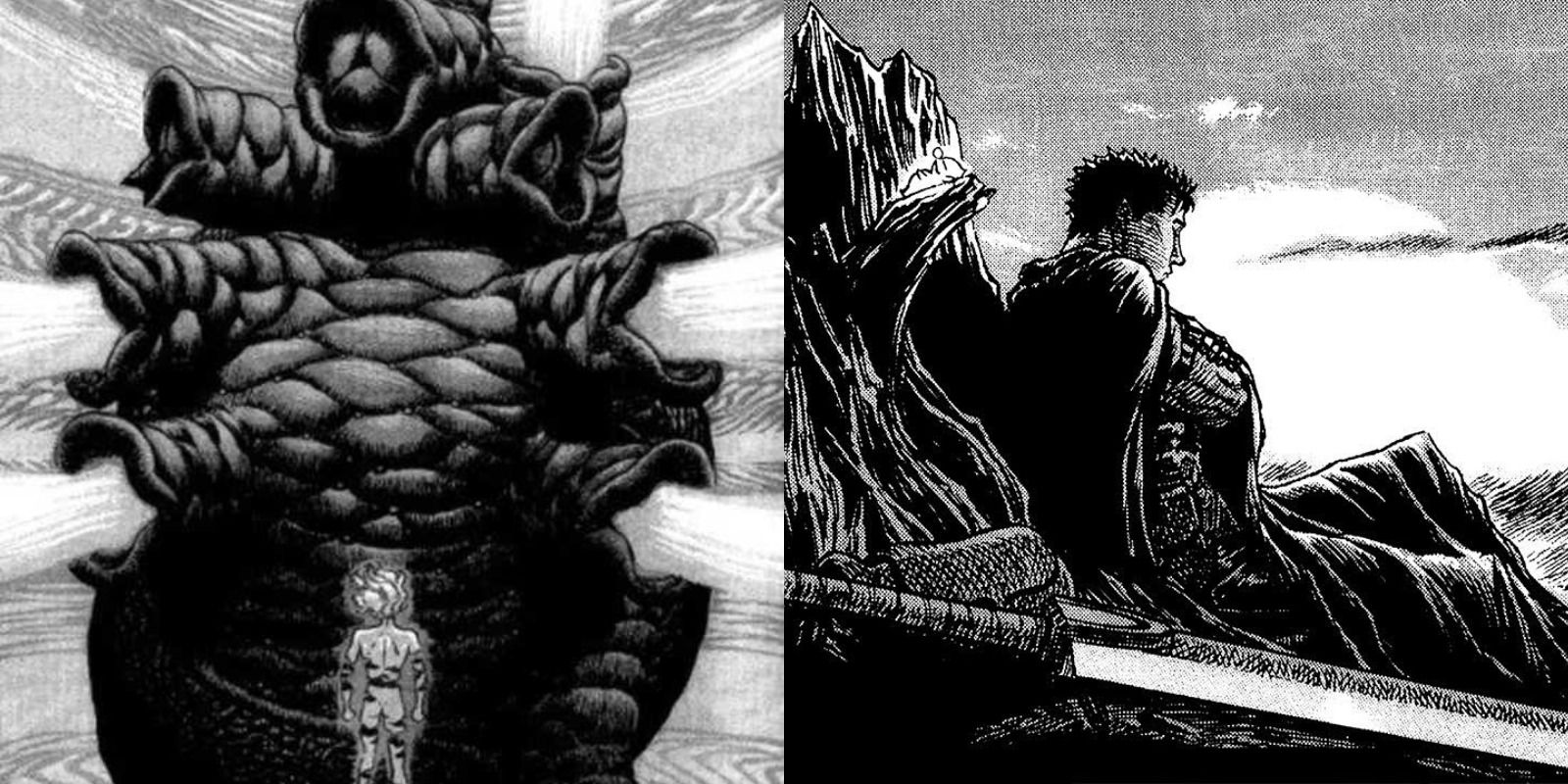Content Warning: This list contains mentions of abuse, sexual assault, and violence
The manga industry recently lost one of its most acclaimed talents in Kentaro Miura. His iconic Berserk series is among the most influential works in the genre across several mediums and a masterclass of dark-fantasy storytelling. The manga dealt with hefty hiatuses, in large part due to Miura's painstakingly exceptional and detailed artwork in addition to writing.
It's among the heaviest series to read for better and--in the earlier years--for worse, but it's an overall powerful one that will arguably stand the test of time as the best manga ever written. While Miura trained other mangaka to assist him, it's unclear what the future holds. Regardless of whether it continues or not, Miura, his life, and Berserk leave an incredible legacy that will live on to be celebrated through the art and profound themes conveyed.
Living For The Future
Guts is undoubtedly one of the characters in fiction to have the most brutal lives. More details on this later, but the one major event to deal the biggest blow, body and soul, was the Eclipse in the Golden Age arc. Many others suffered mercilessly, Casca namely, but the event that somehow makes the Red Wedding in Game of Thrones look tame by comparison is the basis for the story and warping Guts into a barbaric, primal antihero initially--though, thankfully, no longer.
In the Black Swordsman arc, the terrifying, seemingly superhuman force of nature goes on butchering demons/Apostles in his way not because he ultimately wants to, but because his white-hot hatred that's come to define him leaves revenge all he had left to live for. Avenging the past held him back for years, while he should've been focusing on living for the future.
The Struggler Vs. The Current Of Causality (Vs. Fate)
Predetermination is another huge theme of Berserk, particularly during the Golden Age arc onward. Life has treated the heroes of the manga viciously, and the horrors of the Eclipse and the appearance of the God Hand give the idea that everything lies within the current of causality. Everything that occurs results from it, which itself results from the wider concept of fate/destiny/predetermination.
Through the introduction of the Skull Knight, both he and Guts talk about concepts of predetermination, but the latter challenges this theory via his sheer force of willpower. Skull Knight even comes to acknowledge and realize that everything may not be bound by causality or fate since his and Guts' existence and role in the world reside outside the flow--with Guts being the "struggler" against causality and fate--with even the God Hand admitting they're capable of seeing only many of causality's effects.
Healing From Trauma
Trauma is something that comes in spades here. Guts' biological mother was killed as he was born, his adoptive one died from disease and his adoptive father--whom Guts loved--was abusive and sold him out to an underling, leaving him a bitter adolescent and mercenary. Upon being recruited into the Band of the Hawk, he slowly learned to enjoy life and form deep bonds in friendship and romance.
Of course, the Eclipse regressed his progress severely, but, over time, Berserk starts shifting away from revenge and leaning more so into healing, picking up the pieces and letting people in again while rediscovering the importance of family. Casca has to deal with the aftermath of sexual violence as well--and from the man she loved since childhood--with her road to mental recovery a metaphor to real-world survivors.
To Be Human
Humanity is a consistent theme throughout Berserk via perspective and development from the main characters. Guts is first introduced as a hyper-aggressive, cruel antihero at best who only kills demons and Apostles for himself. He proves to be much more conflicted and gradually grows to be more human--compassionate, empathetic.
Human nature and morality is more nuanced, but Guts' initial violently nihilistic perception of it and justification for his early cruel behavior were clouded by his own rage and trauma. Meanwhile, Griffith chose as a child to deny what he sees as weaknesses in humanity, suppress it and believe himself the world's protagonist, with all others existing as pawns for his "greater goal."
Hope In The Face Of Brutality
There's no getting around that the plot is a firm dark-fantasy--earlier on getting extremely dark. However, it thankfully didn't end up being darkness for darkness' sake. The resulting genuinely inspiring story of hope and healing proving emotionally resonant and cements there's foundations of optimism in Berserk.
Going hand-in-hand with the theme of humanity, Guts is the absolute epitome of someone who's--metaphorically and literally--been through hell and back, heals, and demonstrates some of humanity's best traits. In this case: unrelenting resilience and hope, and Berserk's even better for it.
One-Sided & Abusive Relationships
The main trio are all essentially part of a romantic triangle--of sorts--where the relationships become complex and/or unhealthy. Griffith becomes infatuated with Guts to the point where he's sees as almost an equal. Almost, though, because he still relishes ownership of him and reacts catastrophically when Guts leaves.
The latter had the sense to realize through Griffith that he can't live in his shadow, with Guts falling in love with Casca. It became mutual, but Casca simultaneously couldn't fully sever her ties to Griffith--the one-sided love. Griffith uses Charlotte as a "rebound" after Guts, culminating in the horrors he inflicted on Casca in a sadistic attempt to "reestablish dominance."
Idolization
Berserk explores idolization through religious lenses, but also in physically personal ones. Casca's early fixation with Griffith could be seen as such due to her putting him on a pedestal, desperate to serve as his "sword," even knowing that he'd likely never love her. It was evidence of her trauma prior to the Eclipse since Griffith saved her from slavery and initially gave her a purpose.
Religiously, idolization conceptually is explored more overtly in the Conviction arc with Farnese and Father Mozgus. The former was indoctrinated from childhood to follow a violently-rigid belief system that only started to crumble through meeting Guts, and finally breaking upon witnessing Mozgus' villainy--ironically tied to the God Hand.
Power Vs. Strength
The duality of Griffith and Guts present the most notable cases of "power" and "strength," respectively. Griffith wants his own kingdom/empire, which he actually achieves, craving the status and power to wield over anyone within grasp. That prize came at the cost of creating and stepping over countless corpses, including the Band of the Hawk.
Guts was the closest he'd ever bonded to someone, but still burned it all down for power--repressing his humanity. Guts spirals into his own selfish state, but achieves true strength in rediscovering his humanity. The bonds forged and rekindled compassion make him strong, durable, and the reason he is the struggler defying fate.
Pride & Weight Of The World
During the Black Swordsman arc, Guts is among his lowest points. If spending years with the Band of the Hawk were two steps forward, Griffith/Femto and the Eclipse was four steps back, ripping through the world and anyone in the way with nothing but boiling hatred.
What Griffith did to everyone, namely Casca in body and mind, pushed Guts on a path paved in blood. He felt ashamed, with Rickert letting him know upon returning that lonely warriors accomplish nothing. Casca is his "weight of the world," but it's not until he began growing past pride and revenge that progress was truly made.
Existentialism
Causality in Berserk individually is separate from destiny/fate. Despite their title, the God Hand aren't actually "god," as a higher being operates above even them. The Idea of Evil is the collective manifestation of human consciousness that uses causality to dictate the fate of the world.
This brings about discussion of existentialism, with mankind's purpose debatable, while the Idea of Evil is the physical being that humans in this world think of as "god," unknowing that the Idea exists because of them. This subsequently touches on destiny since humanity could be argued as stringing together their own demises.

